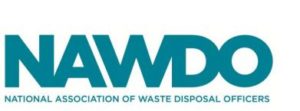Defra announced yesterday (28 November 2024) that local authorities in England, Scotland and Wales could expect to receive a Provisional Notice of Assessment with the estimates that day.
The department added that local authorities in Northern Ireland will receive their Provisional Notices of Assessment “in due course”.
North London Waste Authority (NLWA)
North London Waste Authority (NLWA) chair, councillor Clyde Loakes, has welcomed the publication of estimated payments to local authorities under Extended Producer Responsibility for Packaging (pEPR), by Defra. However, Cllr Loakes said some concerns remain about how the scheme will be administered.
Under pEPR, NLWA – which is responsible for managing the waste of two million residents – can expect to receive an estimated £14.5m to handle, recycle, and dispose of packaging thrown away by residents.
“NLWA has advocated and lobbied hard for many years for polluter pays measures such as pEPR, so we are relieved that it is finally coming to fruition, after years of delay and dither by the previous government,” Loakes said.
“For far too long, producers have expected someone else – council taxpayers – to pay for the disposal of their products’ packaging, which has often led to a carelessness about wasteful and tricky-to-recycle packaging.
“We are hopeful pEPR will encourage producers to save money through producing more environmentally responsible goods.
“In the long term, it is critical that pEPR is geared so that it continues to create economic incentives for producers to design out waste from packaging and to use materials that are recyclable.
“While the pEPR payment estimates are a long overdue step in the right direction, the government needs to ensure that local authorities’ costs to deal with waste are fully met across a greater number of waste types.”
Loakes expressed reservations about how the scheme will be administered, and he urged the government to ensure that business interests were not favoured at the expense of cash-strapped local authorities.
“It is imperative that no group has an outsize influence on the scheme administrator. It must be independent and impartial so that it can make fair decisions on payments from producers as well as how well a local authority manages packaging waste,” Cllr Loakes said.
Loakes welcomed the inclusion of further information about the scheme’s method to judge a local authority’s ‘effectiveness’.
“An effective, fair, and unbiased mechanism to evaluate a local authority’s performance must be developed,” said Loakes.
Loakes added that packaging EPR only covers around 29%* of north London’s waste and recycling, and that EPR should be expanded to cover as many waste streams as possible.
“An EPR scheme for textiles should be implemented as a matter of priority,” Loakes said.
Furthermore, Loakes expressed concern over the significant costs local authorities will face under the planned expansion of the Emissions Trading Scheme.
“The government’s current plans to expand the ETS to cover energy-from-waste facilities will cost north Londoners millions of pounds and force them into a system which carries high and extremely volatile costs. If this scheme goes forward then it is essential that these costs are fully met through EPR schemes for packaging and additional materials to ensure that the incentive to decarbonise is targeted at the producers of material, not the local authorities which have no control over the waste they receive.”
Loakes also called on the government to reincorporate littered packaging, which nationally costs council taxpayers £384 million into the pEPR system.
The seven north London boroughs that NLWA serves, will also receive payments for the collection of packaging waste and recycling. These figures will be analysed over the coming days to ascertain whether all costs have been fully considered by the government.
National Association of Waste Disposal Officers (NAWDO)
The National Association of Waste Disposal Officers (NAWDO) said that it welcomed the payment notifications.
A spokesperson for NAWDO said: “Local authorities have been seeking certainty on the magnitudes of these payments for some time to enable budgets to be set for 2025/26.
“NAWDO looks forward to also receiving further information on the commitment made in the Government’s Autumn 2024 Budget regarding the guarantee of this funding should there be a shortfall in producer payments. Local authorities will need to understand any cashflow impacts that may arise from this, particularly as the pEPR payments are already condensed into the second half of the 2025/26 financial year.
“While NAWDO is pleased that the financial taps of EPR are being turned on, our members are eager to see a road map established to ensure that the principle of ‘full net cost recovery’ is fully embedded in future payment calculations. Modelling payments around benchmarks or average costs inevitably creates ‘winners and losers’, and we do not believe that this is appropriate or sustainable.
“In addition, modelling payments around benchmarks or average costs fails to recognise that local authorities seek best value in procurement processes, and will do so under prevailing market conditions and the national policy landscape at the time they go out to tender. For waste treatment and disposal contracts, this can mean that the prices available to one local authority could be quite be different to those that another can achieve even just a year later. NAWDO believes that is fundamentally wrong to underpay a local authority on the grounds that it is ‘not efficient’, when the prices within its contract were those available at the time it needed to put new services in place.
“NAWDO is pleased to see that work is developing on future effectiveness metrics. Understanding how the pEPR regime will evolve is essential, so that local authorities can plan the delivery of future services to achieve the best outcomes for local people. However, it is important that the pEPR regime takes full account of both local circumstances for individual authorities, as well as limitations in the powers and influence that they have over recycling performance. NAWDO urges the Government to engage closely with local authorities to ensure that future effectiveness metrics and Improvement Action Plan processes are fair, fit for purpose, and adequately take account of the need for local democracy and decision making.”
The East London Waste Authority (ELWA)
The East London Waste Authority (ELWA) welcomed the provisional notices of assessment, which it said provided much needed certainty for local authorities on the funding that will be received under this regime from 2025. ELWA was also pleased to see that the government will guarantee this funding in the face of any shortfall in producer payments.
The packaging EPR regime was established under the principle of ‘full net cost recovery’, and ELWA urged the government to fully embrace this principle as it determines the next steps for the development and evolution of EPR.
A spokesperson said: “Local authority payments need to reflect actual costs, particularly where there are longer-term waste treatment and disposal contracts in place. Local authorities seek Best Value in procurement processes, but differences in prevailing market conditions and the national policy landscape over time have caused there to be variations in costs. The current approach to modelling local authority costs under EPR will inevitably result in some local authorities not receiving sufficient funding to meet the actual costs they are incurring for managing packaging waste.”
ELWA also welcomed the initial information that has been shared with local authorities on future effectiveness metrics.
The spokesperson continued: “Understanding how the EPR regime will evolve is essential, so that local authorities can plan the delivery of future services to achieve the best outcomes for local people. However, it is important that the EPR regime takes full account of both local circumstances for individual authorities, as well as limitations in the powers and influence that they have over recycling performance. ELWA urges the government to engage closely with local authorities to ensure that future effectiveness metrics and Improvement Action Plan processes are fair, fit for purpose, and adequately take account of the need for local democracy and decision making.”
Councillor Miraj Patel, chair of ELWA, said: “ELWA is pleased to have received confirmation of EPR funding for next year, and welcomes the government’s guarantees that this funding will be paid in 2025-26 without deductions.
“Additional investment in waste and recycling services is essential if we are to see improvements in recycling performance, and we look forward to working with packaging producers more closely as the EPR regime evolves.
“I am looking forward to the opportunity to discuss with ministers and producers how the EPR regime can evolve to ensure we see less waste, more reuse, more recycling, and better shared outcomes for the whole packaging value chain.”
LARAC
Cathy Cook, chair of LARAC, reacted to the news: “It is excellent news that payment details are being communicated today. While this information is welcome, local authorities now need time to understand whether the estimated figures will cover the expected costs of managing this material under the new reforms.
“LARAC also calls on Defra to provide information to Northern Irish authorities on their indicative EPR fees so they can move forward with planning. Local authorities are also responsible for ensuring their data submissions to platforms like Waste Data Flow and the WRAP LA Portal are up to date. Accurate data will enable the government to ensure the fairness and accuracy of payments across the sector. This is just the beginning. While these indicative payments represent the first tangible step, the hard work of implementing the reforms starts now.”
LARAC also expressed disappointment that Northern Irish local authorities are not included within this initial notification of indicative payments due to internal governance delays. LARAC strongly urged Defra and DAERA to collaborate and ensure this information is shared as soon as possible, alongside the outcomes of the “Rethinking Our Resources” consultation held earlier this year.
Local Government Information Unit (LGIU)
Jonathan Carr-West, chief executive of the Local Government Information Unit (LGIU), said: “It’s good to have a government that recognises the structural challenges to local government finances and is committed to resolving them and to resetting the relationship with councils. Today’s statement from MHCLG is exactly right to say that it will be a long slog to fix local government finances. This may only be the first step, but it is at least a step in the right direction.
“Before the election, LGIU members were clear about the need for multi-year financial settlements, an end to competitive bid funding and a return to needs based funding allocations. So, we welcome the government’s commitment to moving towards all of those in 2026/27.
“Additional funding in the upcoming financial year may relieve some pressure but it will not stop many councils from moving closer to a financial cliff edge. So it is encouraging to see the government commit to a move away from the established forms of exceptional financial support.
“We know from our research that over the next five years, half of all councils are concerned about their capacity to balance their books. More structured guidance and support is essential. The support framework promised in today’s statement is bound to be tested soon. And, even with these welcomed changes to overall council funding, there will be councils where the changes will not go far enough, fast enough. A focus on reform past 2026/27 must look at the whole system and incorporate reforms to the tax base, expanded revenue options and fully integrated budgets.
“We have consistently urged the government to see local government finance reform, public service reform and devolution as part of a single project, so we welcome today’s statement bringing them together. It’s important however, that form should follow function and structural changes to local government and local governance must be about quality of public service provision and democratic engagement not just narrowly defined “efficiency”. We look forward to seeing more about this in the forthcoming devolution white paper.”














Subscribe for free